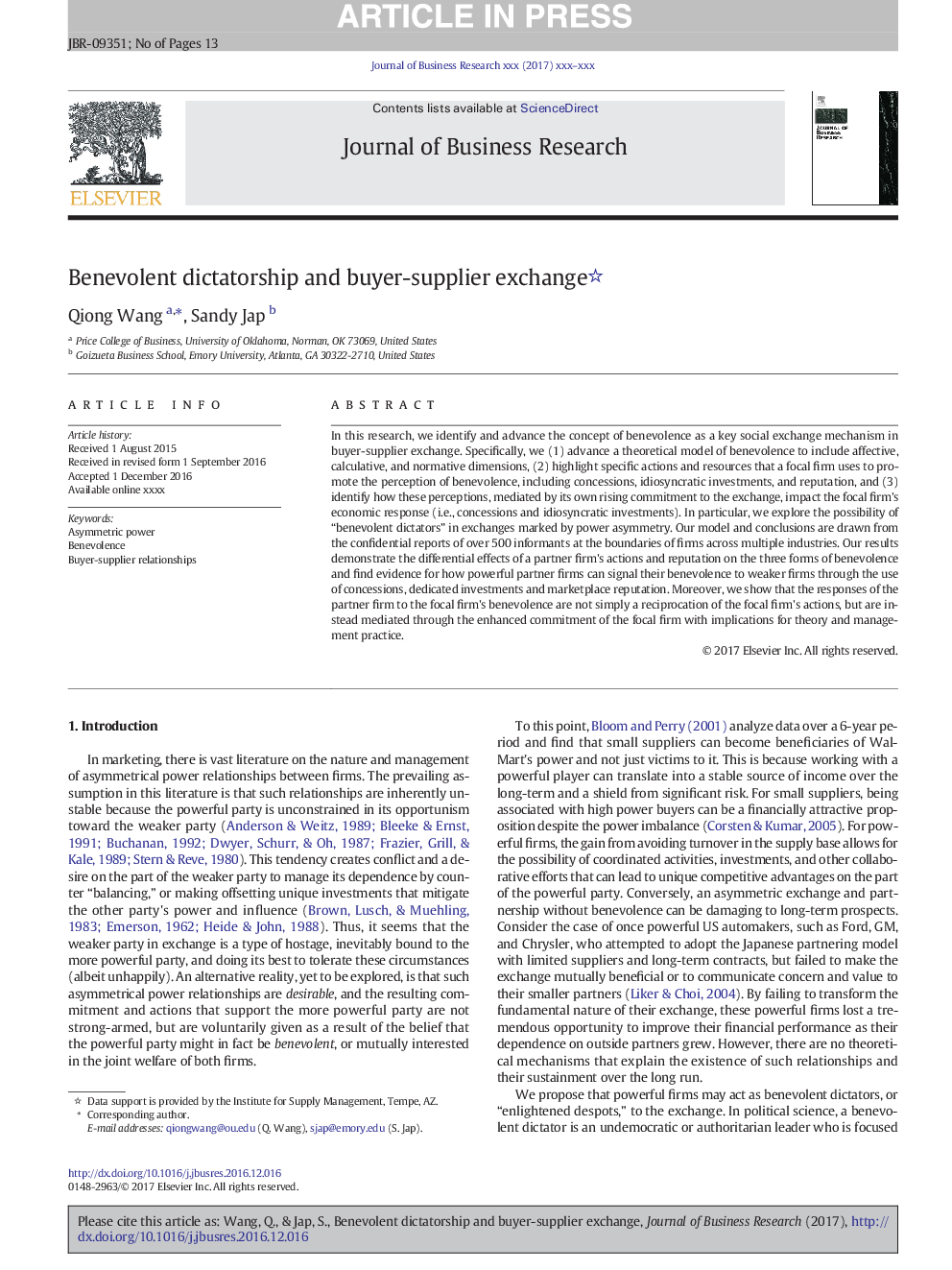ترجمه فارسی عنوان مقاله
دیکتاتوری خیرخواه و مبادله خریدار و تامین کننده
عنوان انگلیسی
Benevolent dictatorship and buyer-supplier exchange
| کد مقاله | سال انتشار | تعداد صفحات مقاله انگلیسی |
|---|---|---|
| 133976 | 2017 | 13 صفحه PDF |
منبع

Publisher : Elsevier - Science Direct (الزویر - ساینس دایرکت)
Journal : Journal of Business Research, Volume 78, September 2017, Pages 204-216
ترجمه کلمات کلیدی
قدرت نامتقارن، خیرخواهی، روابط خریدار و عرضه کننده،
کلمات کلیدی انگلیسی
Asymmetric power; Benevolence; Buyer-supplier relationships;

